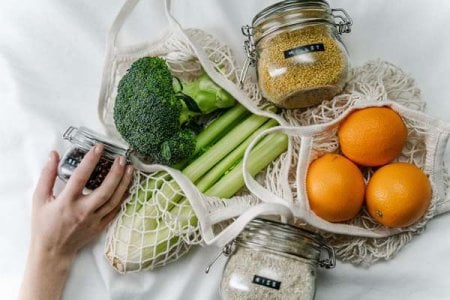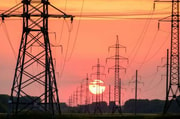You Won't Believe How Much Less You're Paying for Groceries Than People in Indigenous Communities! Check Out the Shocking Price Differences!
By
Danielle F.
- Replies 17
When we think about the cost of living, we often consider our own expenses and how they've changed over time. But have you ever stopped to think about how the price of essential groceries can vary dramatically depending on where you live in Australia? For our members living in remote Indigenous communities, the disparity is not just a matter of cents but dollars – and it's causing outrage and concern as the cost of living continues to rise.
A recent investigation by consumer advocacy group Choice has revealed a stark contrast in the price of grocery items between remote First Nations communities and major cities. The findings are enough to make anyone's jaw drop. In a comparison of nine 'essential' grocery items, residents in remote communities across Western Australia and the Northern Territory are paying more than double – with a grocery haul costing a staggering $99.38 in some areas, and even jumping to $110.82 in the West Daly region. This is in sharp contrast to the $44.70 price tag for the same items in Woolworths, Coles, ALDI, and IGA stores in all capital cities.
The implications of these findings are profound. Alan Gray, managing director of financial counselling at Bush Money Mob, spoke to Choice investigative journalist Jarni Blakkarly about the lack of services that 'mainstream Australians take for granted' in remote Aboriginal communities. The limited access to healthy, affordable food is a significant concern, especially when considering the broader goal of Closing The Gap in health and well being for First Nations people.
Financial counsellor and Boandik woman Bettina Cooper highlighted the lack of options for those living in remote areas, where often there is only one local store dictating the prices. The impact on families is immediate and distressing – if food isn't priced fairly, it can mean not being able to feed your family consistently.
In response to these alarming disparities, Choice has called on the National Indigenous Australians Agency (NIAA) to implement measures such as price caps on essential grocery items, mandated display prices, regulations for informal credit schemes, a price monitoring tool, and subsidies for freight across the country. These initiatives aim to reduce grocery prices, improve accessibility, and help close the gap for First Nations people living in remote communities.
The Australian Competition and Consumer Commission (ACCC) is also conducting an inquiry into supermarket pricing and procurement, with an interim report published and a final report due to the Treasurer by February 2025. Meanwhile, the NIAA has stated that they are developing a National Strategy for Food Security in Remote First Nations Communities in partnership with various government bodies and health organisations.
The strategy, which is expected to be finalised in early 2025, will consider the findings from recent public consultations that included input from around 500 individuals and 45 online submissions. One of the focus areas will be remote retail, with accurate product pricing being a key consideration.
The 2024 Commonwealth Closing the Gap Implementation Plan has recognised remote food security as a national priority, integrating it as a critical issue across all targets and priority reforms. This recognition is a step in the right direction, but for many families, the need for action is urgent.
As members of the Seniors Discount Club, we understand the importance of fair pricing and access to nutritious food for a healthy lifestyle. We stand in solidarity with our fellow Australians in remote Indigenous communities and support the call for equitable food pricing. It's time for change, and it's time for all Australians, regardless of where they live, to have access to affordable groceries.

We invite you to share your thoughts and experiences on this issue. Have you noticed price differences in your own community? What do you think can be done to ensure fair pricing for all? Join the conversation in the comments below.
A recent investigation by consumer advocacy group Choice has revealed a stark contrast in the price of grocery items between remote First Nations communities and major cities. The findings are enough to make anyone's jaw drop. In a comparison of nine 'essential' grocery items, residents in remote communities across Western Australia and the Northern Territory are paying more than double – with a grocery haul costing a staggering $99.38 in some areas, and even jumping to $110.82 in the West Daly region. This is in sharp contrast to the $44.70 price tag for the same items in Woolworths, Coles, ALDI, and IGA stores in all capital cities.
The implications of these findings are profound. Alan Gray, managing director of financial counselling at Bush Money Mob, spoke to Choice investigative journalist Jarni Blakkarly about the lack of services that 'mainstream Australians take for granted' in remote Aboriginal communities. The limited access to healthy, affordable food is a significant concern, especially when considering the broader goal of Closing The Gap in health and well being for First Nations people.
Financial counsellor and Boandik woman Bettina Cooper highlighted the lack of options for those living in remote areas, where often there is only one local store dictating the prices. The impact on families is immediate and distressing – if food isn't priced fairly, it can mean not being able to feed your family consistently.
In response to these alarming disparities, Choice has called on the National Indigenous Australians Agency (NIAA) to implement measures such as price caps on essential grocery items, mandated display prices, regulations for informal credit schemes, a price monitoring tool, and subsidies for freight across the country. These initiatives aim to reduce grocery prices, improve accessibility, and help close the gap for First Nations people living in remote communities.
The Australian Competition and Consumer Commission (ACCC) is also conducting an inquiry into supermarket pricing and procurement, with an interim report published and a final report due to the Treasurer by February 2025. Meanwhile, the NIAA has stated that they are developing a National Strategy for Food Security in Remote First Nations Communities in partnership with various government bodies and health organisations.
The strategy, which is expected to be finalised in early 2025, will consider the findings from recent public consultations that included input from around 500 individuals and 45 online submissions. One of the focus areas will be remote retail, with accurate product pricing being a key consideration.
The 2024 Commonwealth Closing the Gap Implementation Plan has recognised remote food security as a national priority, integrating it as a critical issue across all targets and priority reforms. This recognition is a step in the right direction, but for many families, the need for action is urgent.
As members of the Seniors Discount Club, we understand the importance of fair pricing and access to nutritious food for a healthy lifestyle. We stand in solidarity with our fellow Australians in remote Indigenous communities and support the call for equitable food pricing. It's time for change, and it's time for all Australians, regardless of where they live, to have access to affordable groceries.
Key Takeaways
- Indigenous Australians living in remote communities are facing shockingly high prices for essential grocery items, with costs significantly higher than in major cities.
- A mystery shopping exercise by Choice revealed that a list of nine essential items could cost over twice as much in remote First Nations communities compared to city supermarkets.
- Advocates argue for equity in healthy living for First Nations peoples and have called for the National Indigenous Australians Agency to implement price caps and other measures to make groceries more affordable in remote areas.
- The Australian Government is working on a National Strategy for Food Security in Remote First Nations Communities and is considering the findings from public consultations to inform the strategy, which is expected to be finalised in early 2025.








